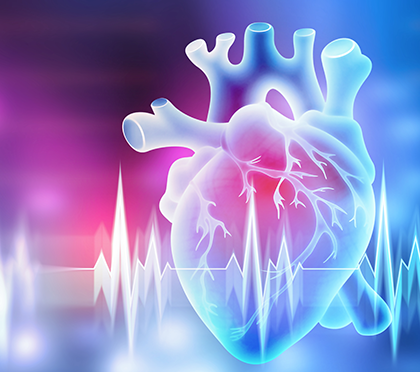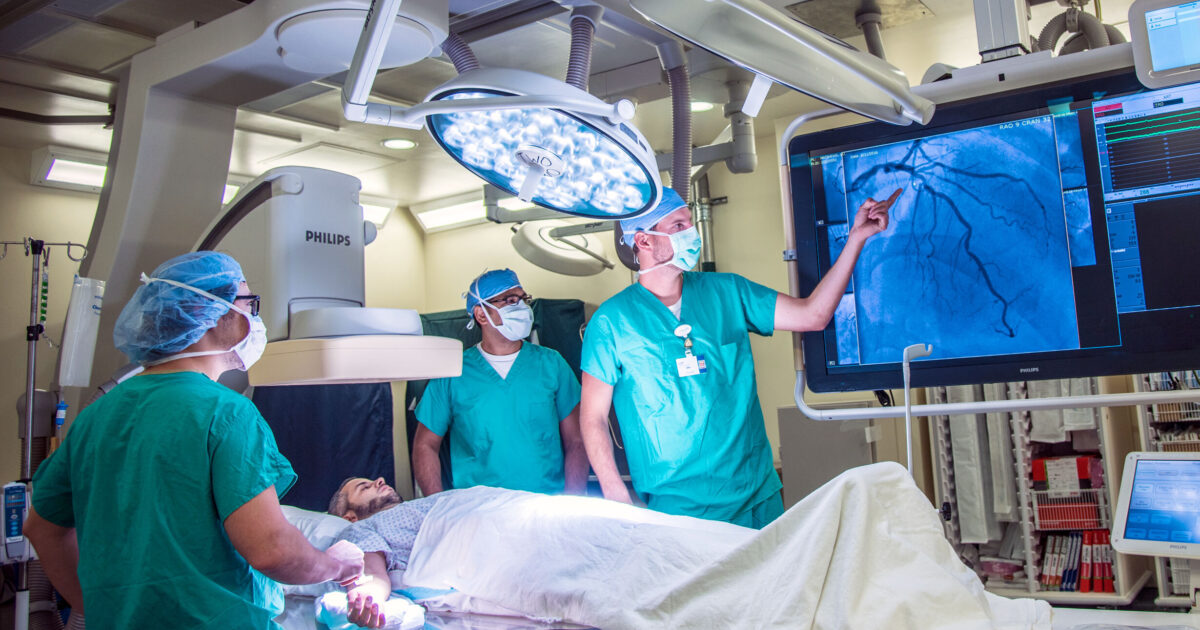Understanding the Relevance of Cardiology in Modern Healthcare Services
Cardiology plays an important function in modern healthcare, specifically as heart condition remains to be the leading root cause of death worldwide. Developments in diagnostics and treatment have actually changed individual care, allowing earlier treatments and boosted results. In addition, the shift towards preventive cardiology encourages people to handle their wellness proactively. As technology continues to develop, the combination of innovative remedies might better redefine cardiology's effect on public health, prompting a more detailed evaluation of emerging fads and their ramifications.
The Frequency of Cardiovascular Disease and Its Influence On Public Wellness
Heart illness continues to be the leading cause of death worldwide, its effect prolongs much beyond private patients to affect public health and wellness systems and economic situations. The high frequency of heart disease places a significant stress on medical care sources, requiring enhanced funding for prevention, rehab, and therapy programs. Public health efforts should address risk variables such as obesity, cigarette smoking, and less active way of livings, which add considerably to the rising incidence of heart conditions.Moreover, the financial concern related to heart problem is tremendous, incorporating not just direct medical prices yet likewise indirect costs associated with shed efficiency and premature death. Areas encounter challenges in managing these prices, typically resulting in differences in medical care accessibility and results. As the population ages and lifestyle-related risks proceed to escalate, the urgency for efficient cardiology interventions becomes critical. Consequently, resolving heart illness is not only a matter of individual wellness yet also a crucial public health priority.
Breakthroughs in Heart Diagnostics and Imaging Techniques
Recent advancements in cardiac diagnostics and imaging strategies have reinvented the field of cardiology, improving the capability to identify and keep an eye on heart problem. Methods such as cardiac MRI, CT angiography, and echocardiography have actually ended up being progressively advanced, providing in-depth pictures of cardiac structures and features. These methods enable the early identification of problems like coronary artery disease, cardiac arrest, and valvular disorders.Moreover, advancements in non-invasive diagnostics, such as wearable modern technology and remote surveillance devices, have empowered individuals and doctor. These devices promote real-time monitoring of heart rhythms and various other important indications, resulting in timely treatments. Furthermore, man-made knowledge is being incorporated into imaging analysis, improving accuracy and efficiency in diagnosis.
Developments in Therapy Alternatives for Heart Conditions
Recent improvements in cardiology have actually resulted in substantial innovations in therapy alternatives for heart disease. These consist of innovative medical methods that improve procedural results and emerging medicines that use brand-new methods for therapy. As the field progresses, these developments play an essential role in boosting individual care and results.
Advanced Surgical Techniques
Innovations in medical methods have actually changed the landscape of cardiology, offering new wish for clients with heart problems. Minimally intrusive procedures, such as catheter-based treatments, have significantly reduced healing times and medical facility remains. Strategies like robotic-assisted surgical treatment enhance precision, enabling cosmetic surgeons to navigate complex physiological frameworks with greater precision. Moreover, developments in imaging modern technology assist in real-time visualization during procedures, improving end results. Transcatheter aortic valve replacement (TAVR) exhibits a breakthrough in dealing with aortic constriction, enabling shutoff substitute without open-heart surgical treatment. Furthermore, hybrid strategies that combine catheter-based and surgical methods provide tailored services for numerous cardiac problems. These advanced surgical strategies not only improve client security however likewise increase therapy choices, highlighting the critical function of development in contemporary cardiology practices.
Emerging Treatments and medicines
As the landscape of cardiology remains to evolve, emerging therapies and drugs play a crucial function in improving treatment choices for heart disease. Innovations such as novel anticoagulants and progressed lipid-lowering representatives have changed the administration of cardio illness, substantially reducing person morbidity and mortality. Additionally, the advancement of gene treatments and regenerative medicine uses encouraging methods for dealing with conditions formerly regarded irreparable. Clinical trials are continually exposing the efficiency of these therapies, pressing the limits of standard therapies. The combination of electronic health and wellness modern technologies promotes customized medicine, allowing for tailored treatment strategies based on hereditary and lifestyle aspects. Jointly, these advancements underscore the dynamic nature of cardiology, improving patient results and redefining standards of treatment in modern-day healthcare.
The Function of Preventive Cardiology in Client Treatment
Precautionary cardiology plays an important role in patient treatment by concentrating on the recognition of threat factors that contribute to heart problem. Via way of living modification techniques and early discovery strategies, health care carriers can properly lower the incidence of cardio occasions - Dr Garcia. This aggressive method not just improves client end results but also promotes lasting wellness
Danger Factor Identification
While heart diseases remain a leading source of morbidity and mortality worldwide, efficient threat variable recognition offers as a cornerstone of preventative cardiology. Identifying danger aspects such as hypertension, diabetic issues, family members, and hyperlipidemia background is essential for very early intervention. Medical care experts utilize different evaluating techniques to evaluate these aspects, enabling tailored preventive procedures. In addition, comprehending a patient's lifestyle options, such as smoking and physical lack of exercise, further informs threat assessments. This detailed assessment enables medical professionals to create customized treatment plans targeted at mitigating dangers. By focusing on risk factor identification, healthcare systems can boost client websites results and reduce the overall concern of cardio diseases, inevitably contributing to enhanced public health and wellness approaches and source allowance.
Lifestyle Adjustment Approaches
A multitude of researches highlights the Get the facts vital role of way of life adjustment methods in minimizing cardio disease threat. These methods incorporate nutritional changes, enhanced exercise, smoking cessation, and weight management. By embracing a heart-healthy diet regimen abundant in fruits, veggies, entire grains, and lean healthy proteins, people can reduce cholesterol degrees and high blood pressure. Routine exercise strengthens the heart and boosts general cardiovascular wellness. Additionally, giving up smoking greatly reduces the danger of cardiovascular disease and boosts recovery rates for those with present conditions. Weight administration even more adds to cardiovascular health and wellness by alleviating various other danger elements such as diabetes mellitus and hypertension. Implementing these lifestyle changes not just advertises private wellness however additionally acts as a keystone of preventive cardiology in person treatment.
Early Detection Strategies
Way of living modifications greatly add to decreasing heart disease threats, however they are most reliable when coupled with very early detection strategies. Preventative cardiology emphasizes the value of identifying possible heart concerns prior to they intensify into major conditions. Methods such as high blood pressure monitoring, cholesterol testing, and advanced imaging innovations like echocardiograms play critical roles in examining cardiovascular health and wellness. Biomarkers and genetic screening additionally boost the accuracy of very early discovery, permitting tailored preventative techniques. Normal heart threat analyses encourage doctor to intervene proactively, possibly preventing heart strikes and strokes (Cardiology care). By integrating these early discovery techniques into regular treatment, people can gain from prompt way of life treatments and targeted therapies, ultimately enhancing and enhancing results lifestyle
Integrating Technology Into Cardiology Practices
As developments in modern technology proceed to improve various fields, the combination of innovative tools and systems right into cardiology practices has come to be vital for enhancing individual care and end results. Telemedicine systems permit cardiologists to keep an eye on clients remotely, boosting access to care while minimizing the burden on healthcare facilities. Wearable devices, such as smartwatches, enable continuous heart rate tracking, alerting both medical professionals and patients to potential concerns in real-time. Furthermore, expert system (AI) is being utilized to analyze huge quantities of heart information, assisting in early medical diagnosis and individualized treatment strategies. Advanced imaging techniques, consisting of 3D echocardiography, enhance visualization of heart structures, leading to more go to this web-site exact treatments. Digital health and wellness records (EHRs) streamline individual info management, making sure that cardiologists have instant access to important information. Together, these technical innovations are changing cardiology, advertising positive administration and improved wellness results for individuals with cardio problems.
The Value of Individual Education And Learning and Involvement
Client education and engagement play a crucial duty in the monitoring of cardio health and wellness. By gearing up people with understanding concerning their problems, therapy options, and way of living changes, doctor equip individuals to take an energetic function in their care. This positive approach can bring about enhanced adherence to prescribed drugs, nutritional adjustments, and exercise programs, inevitably reducing the threat of complications.Engagement also cultivates a strong patient-provider connection, urging open communication and trust. When patients really feel notified and included, they are most likely to voice problems and ask concerns, which can result in far better professional results. Furthermore, educational sources, such as workshops or electronic systems, can improve understanding and advertise self-management approaches. Generally, focusing on individual education and interaction is necessary for enhancing cardio health and wellness, enhancing top quality of life, and decreasing healthcare expenses connected with heart diseases.
Future Trends in Cardiology and Their Prospective Influence

Frequently Asked Inquiries
What Lifestyle Changes Can Minimize Heart Disease Danger?
The present inquiry addresses lifestyle changes that can considerably minimize cardiovascular disease danger. Dr Garcia. Adopting a balanced diet regimen, participating in routine exercise, maintaining a healthy and balanced weight, taking care of stress and anxiety, and preventing tobacco can significantly boost cardio health
Just How Can I Acknowledge Very Early Indicators of Heart Problems?
Recognizing early indications of heart troubles entails monitoring symptoms such as upper body discomfort, shortness of breath, tiredness, and uneven heart beat. Prompt understanding of these indications can trigger necessary clinical assessment and treatment for much better outcomes.
What Are the Distinctions In Between Cardiologists and Heart Surgeons?
The differences between cardiologists and cardiac doctors hinge on their functions; cardiologists primarily identify and manage heart conditions with non-invasive methods, while cardiac surgeons carry out operations to remedy structural heart problems. Each plays a vital, distinctive duty.

How Often Should I Get My Heart Wellness Checked?
The regularity of heart medical examination varies based upon private danger aspects. Typically, grownups must undertake examinations every one to two years, while those with current problems may call for even more constant analyses as encouraged by health care professionals.
What Role Does Genes Play in Heart Disease Danger?
Genes significantly affects cardiovascular disease risk, with domestic patterns showing inherited problems. Specific genes can incline individuals to high blood pressure, cholesterol problems, and various other cardiovascular troubles, highlighting the value of genetic screening in reviewing heart health. Heart disease remains the leading cause of fatality internationally, its impact expands far beyond specific patients to affect public health and wellness systems and economic situations. Public wellness campaigns must deal with risk elements such as excessive weight, smoking cigarettes, and sedentary way of livings, which add substantially to the climbing incidence of heart conditions.Moreover, the financial burden linked with heart illness is tremendous, including not only straight clinical costs but also indirect costs related to lost productivity and early mortality. Preventative cardiology plays a crucial function in client care by focusing on the recognition of threat aspects that add to heart disease. Artificial knowledge (AI) and machine learning are enhancing diagnostics and client tracking, making it possible for very early discovery of heart illness. The distinctions in between cardiologists and cardiac specialists exist in their roles; cardiologists primarily detect and manage heart problems through non-invasive approaches, while heart doctors carry out medical procedures to correct structural heart issues.